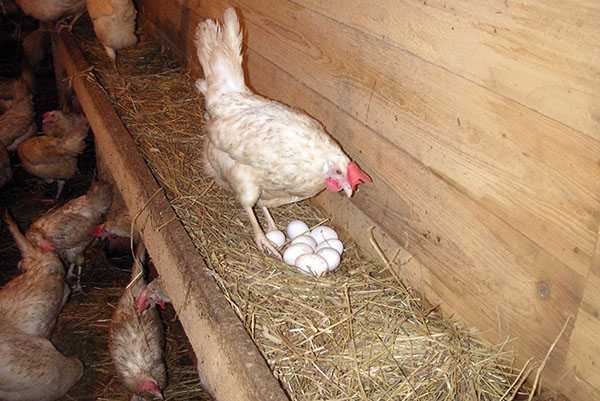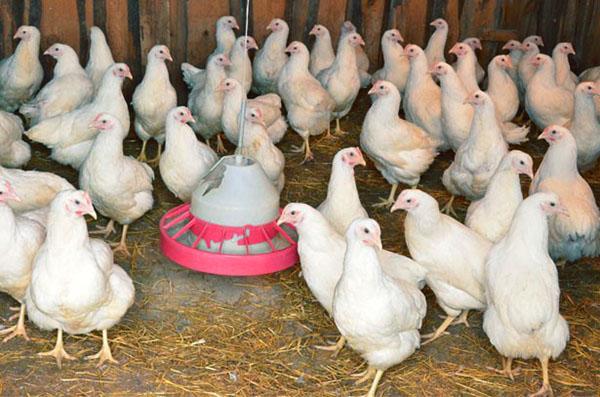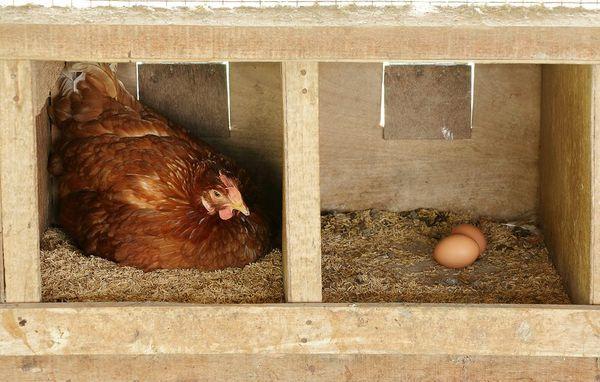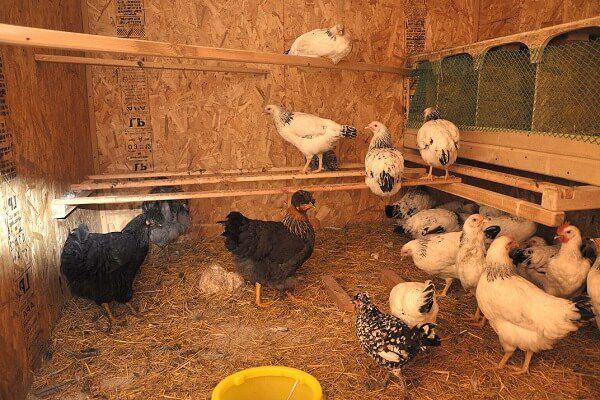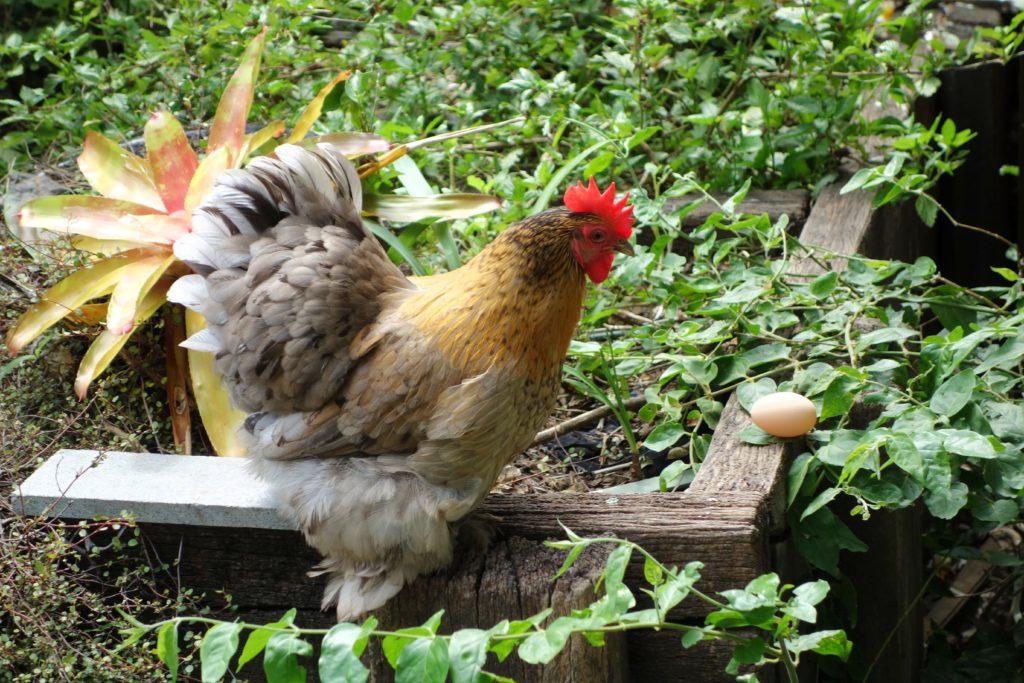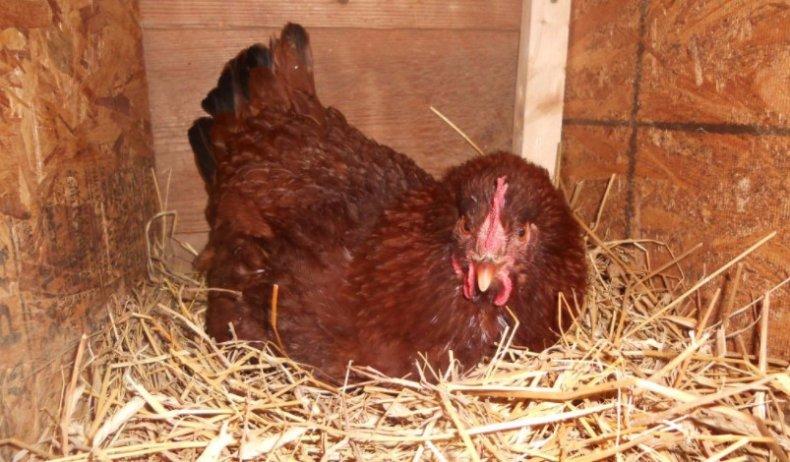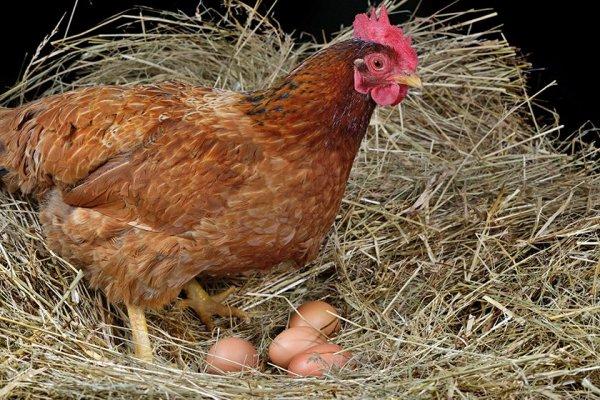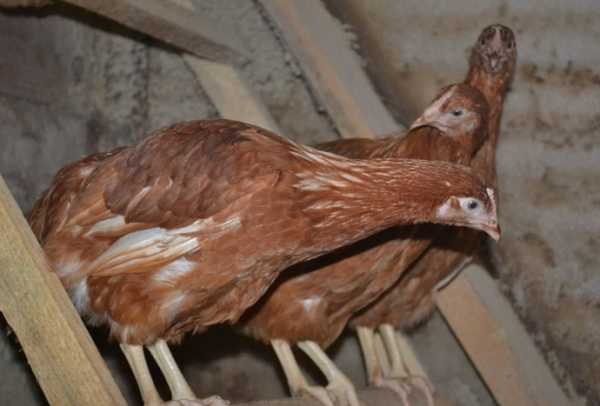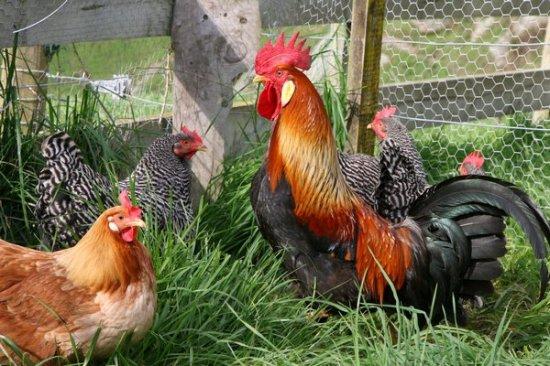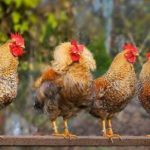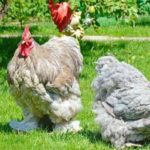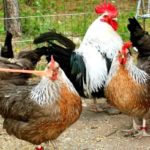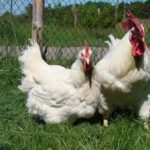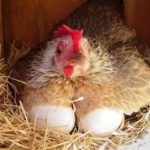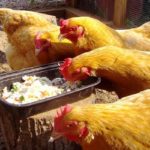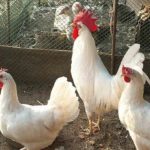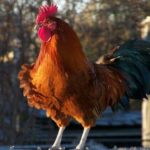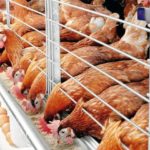Chicken is not only a source of meat. The keeping of birds is explained by their high egg production. Professional poultry farmers and amateurs create all the conditions for laying hens to produce eggs. But there are cases when keeping birds that people never receive eggs. Then the question arises, why does the productivity of chickens decrease and they do not lay eggs?
- Reasons for decreased egg production in chickens
- Lighting
- Temperature
- Stress
- Air humidity
- Nutrition
- Seasonal changes
- Autumn
- Winter
- Spring
- Summer
- Age-related changes
- Breed
- Hatching instinct
- Presence of external or internal parasites
- Predators
- Obesity
- How to improve egg production?
- Do you need a rooster to lay eggs?
- In what cases is a rooster removed from the flock?
- Conclusion
Reasons for decreased egg production in chickens
It depends not only on human actions. External irritants negatively affect birds. Failure to comply with containment conditions is the root cause.
Lighting
Violation of the light regime often leads to chickens stopping laying eggs. The body of poultry is designed in such a way that they wake up at sunrise and fall asleep at sunset. As a rule, the duration of daylight hours is 12 hours.
Daylight hours decrease in midsummer. Simultaneously with other phenomena, it leads to the fact that chickens stop laying eggs. The solution to the problem is to use a source of artificial lighting.
Temperature
High or too low air temperatures in the chicken coop also negatively affect egg production. Optimal indicators should not go beyond 23-25 degrees. A thermometer will help you control the indicator.
In spring and summer, the chicken coop must be ventilated, and the more often, the better. With the onset of cold weather, the poultry house is insulated and, if necessary, heaters are installed. This issue is very important when keeping laying hens, since their bodies react sensitively to heat and cold.
Stress
If a hen experiences shock, she stops laying eggs completely or her egg production decreases. Stress in chickens is caused by the following factors:
- sudden cold or warming;
- the appearance of new birds in the chicken coop;
- screams and noise;
- change of feed;
- transfer to a new location.
To prevent stress in the chicken and preserve the production of eggs, experienced farmers give ascorbic acid or vitamin E along with the food.
Air humidity
In this matter it is also necessary to adhere to the “golden mean”. If chickens stop laying eggs, pay attention to the humidity in the chicken coop.Various types of dermatitis develop against the background of too dry or humid air.
Nutrition
If there is a lack of nutrients in a chicken, egg production continues, but the eggs that the bird lays are deprived of shells. To avoid this phenomenon, people feed birds with balanced food. For this purpose, a diet is developed in advance.
The main food of adult birds is grain, fresh herbs or vegetable tops.
The latter is most often used if you are not walking in the courtyard. The problem with eggs without shells can be corrected by adding bone meal, shells or chalk to the feed.
Seasonal changes
Egg production directly depends on the time of year.
Autumn
If laying hens do not produce eggs in the fall, people begin to sound the alarm, looking for problems in the diet or the conditions of the chicken coop. Along with the lack of eggs, chickens lose their plumage. This indicates that the molting process has begun. At this time, the bird’s body rests, and with the onset of warmth, egg production returns.
Winter
The autumn molt, which begins in September, continues and drags on until winter. At the end of the coldest time of the year, chickens begin to lay eggs, but not so many of them. A complete absence indicates that the problem lies in improper conditions of detention.
Spring
The weather in spring is very changeable and dangerous. Poultry farmers open the coop too early, letting cold air in. There should be no drafts in the room where chickens are kept.
Summer
The reasons for stopping egg laying are lack of calcium in the body, disease and the presence of rats. There is no need to panic in such cases. Having reviewed the mistakes, the person will do everything possible to prevent this from happening again next year.
Age-related changes
4-5 months after the chicks are born, they begin to lay eggs.The appearance of the comb indicates whether the hen is ready to lay eggs. It turns red and looks developed.
There is another way to determine whether pullets are ready for laying. She is turned over on her back and passed along the breastbone to the lower abdomen. If the finger goes completely deep between the pubic bones, the hen will lay eggs within a month.
Laying hens continue to lay eggs for 2 years. In order to always have eggs on the farm, it is recommended to replenish the herd with young animals. For this purpose, periodic audits are carried out.
Breed
Chickens are birds of many breeds. Some species lay eggs every day, while others do not. Breeds of exclusively egg producing chickens produce about 300 eggs per year.
If a person wants chickens to lay eggs and at the same time the meat can be eaten, they pay attention to universal options - meat-egg types.
Laying hens produce 200 eggs per year. Moreover, their meat has good taste.
Hatching instinct
In spring and summer, chickens change their behavior. As a rule, this is accompanied by the fact that the hen has stopped producing eggs and leaves the nest in rare cases. If a bird steals eggs from other birds, it has developed an incubation instinct.
Presence of external or internal parasites
The production of eggs depends on the state of the chicken’s body. Egg production decreases or disappears completely if the bird suddenly develops some kind of disease. The cause of poor condition may be internal or external parasites. A similar issue can be resolved by hygienic actions in the chicken coop and taking medications.
Predators
Rats, ferrets, martens and even foxes live near the chicken coop.They often choose farms in which birds produce a lot of eggs. The chicken coop must be protected from predators. To do this, all holes and loopholes are closed.
Other chickens can also act as predators. They steal eggs and then eat them. Poultry farmers often find egg shells in nests.
Obesity
Chickens that spend almost all their time in a closed chicken coop become overgrown with fat. Limited space does not allow them to move freely. As a result, the fat that appears accumulates around the oviduct, and the chicken cannot lay eggs. In rare cases, such situations end with the bird dying. Therefore, it is recommended to approach this issue with great responsibility.
There must be a walking yard around the chicken coop. This allows chickens to be kept in conditions close to natural, which in turn increases their productivity.
Chickens will not get fat if they walk among green grass or clean their plumage in ash or sand. Even if space is limited, it’s good to have a walking yard.
Chickens are curious birds that will find something to do outdoors. Even if the birds are kept on a farm, it is still recommended to let them outside every day. Staying in the fresh air can last 15-20 minutes, which is already good.
How to improve egg production?
There are several ways to get laying hens to lay eggs. You don't need to come up with something supernatural for this. You just need to provide the birds with proper living conditions:
- The nutrition of laying hens should be complete. Diversity is encouraged. The diet should include grains, vegetables, and herbs. Don’t forget about additional elements such as chalk and shells.To saturate your diet with calcium, use a little trick. The shells from used eggs are dried and crushed. The resulting powder is added to food in the morning and evening.
- There must be water available in the walking area. For convenience, drinking bowls are installed that adults cannot turn over.
- Laying hens are given time to get used to new individuals in the house. This may take from 3 to 7 days.
- The place where birds are kept must be protected from external irritants. Birds do well in a quiet and calm environment.
- Regardless of the time of year, favorable conditions are created in the chicken coop. If the birds feel comfortable indoors, it means the person is doing everything right. The three main rules that should be followed are temperature conditions, sufficient lighting and humidity.
- The herd is regularly replenished with new individuals. In this way, a person is constantly provided with eggs without experiencing a shortage of them.
Boxes intended for laying hens should also be located in a protected area. If this is a chicken coop, it is located in a secluded place. A layer of straw or hay is placed at the bottom. The box is raised from the ground to avoid exposure to cold air.
If laying hens sit in boxes two at a time, it means they don’t have enough space. As a rule, there is one box for 4 chickens. This is a very important point that poultry farmers must take into account.
Do you need a rooster to lay eggs?
The rooster is one of the members of the herd, responsible for order. The chickens always listen to him. He is responsible for ensuring that all his charges are fed and that everyone has enough space in the nests. There should not be many roosters in the chicken coop. In this case, daily fights are guaranteed.
One rooster is responsible for 10 laying hens.The frequency of laying eggs does not depend on the number of roosters. During the growth of young animals, the herd is regularly inspected.
The rooster does not affect the increase in egg production. The chicken's body is designed in such a way that it will lay eggs in any case. The need for a rooster arises if a person plans to have offspring. The fact is that chicks hatch only from fertilized eggs.
In what cases is a rooster removed from the flock?
It often happens that the rooster does not help, but only gets in the way. He becomes aggressive towards his owners and attacks them when they try to feed the herd. The larger the rooster, the more serious the attacks on its part.
The aggressiveness of the rooster affects the egg production of hens. His anxiety rubs off on him, and in stressful situations, hens stop laying eggs.
Roosters are removed from the flock as soon as possible. They take someone else in his place, since the chickens need his presence.
Conclusion
Most often, poultry farmers are faced with the problem of a lack of egg production in chickens if they are kept in unsuitable conditions. Birds by nature have a very sensitive body, so they need care. Many people take action to correct a situation without understanding why it arose. This is wrong and only makes the problem worse.

